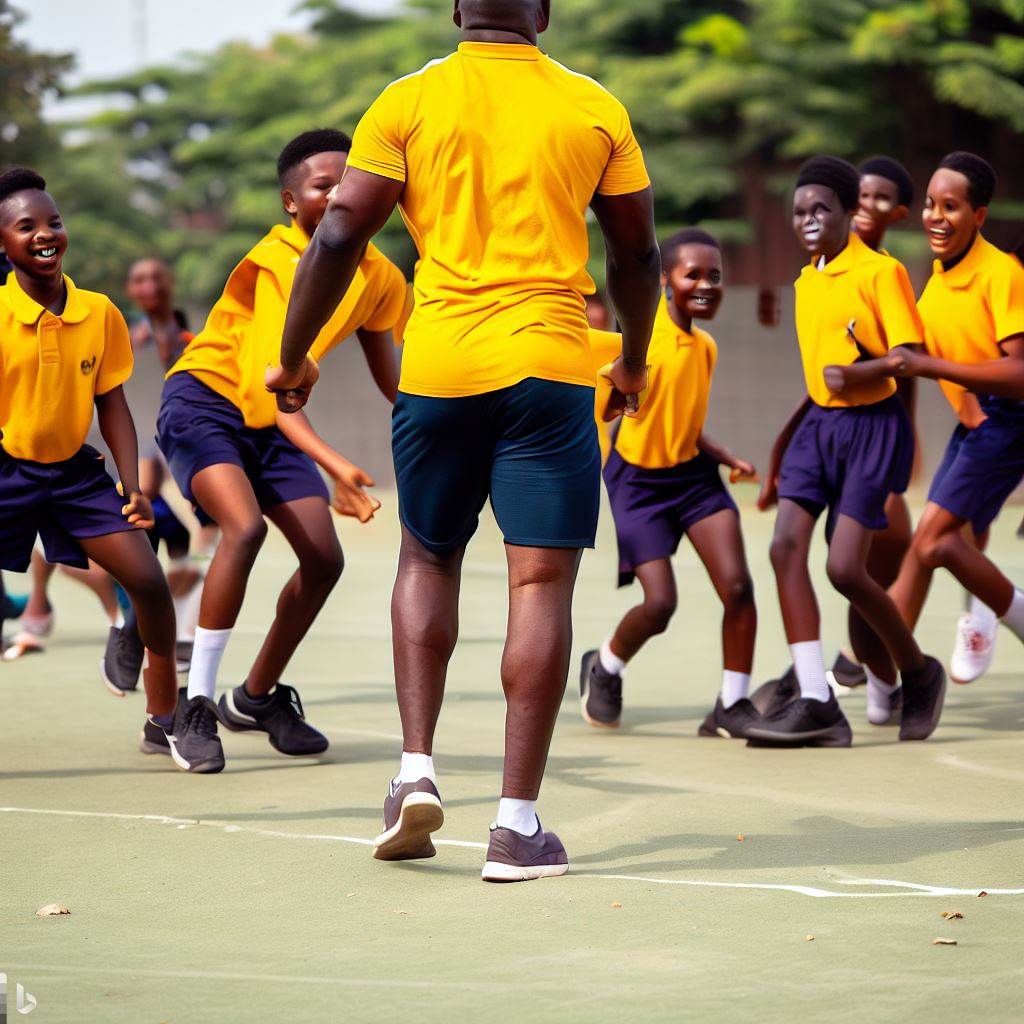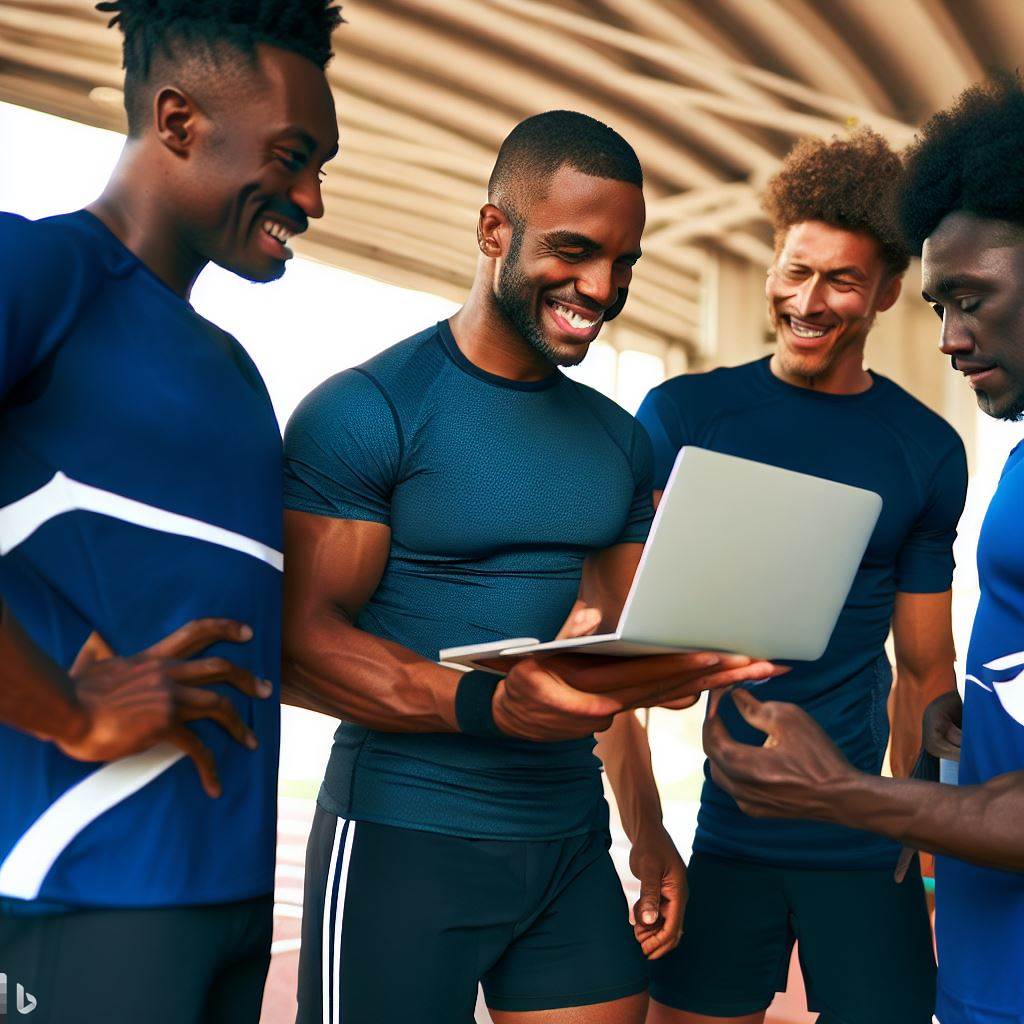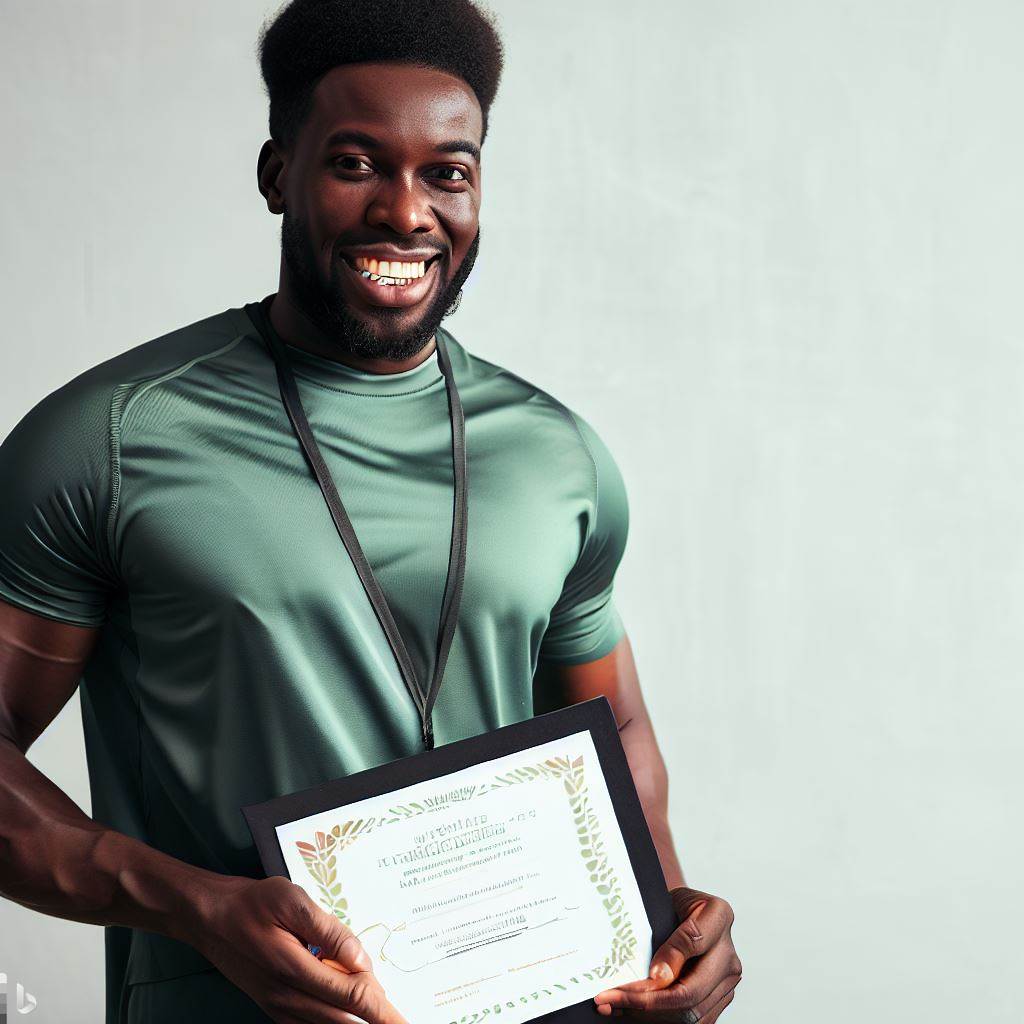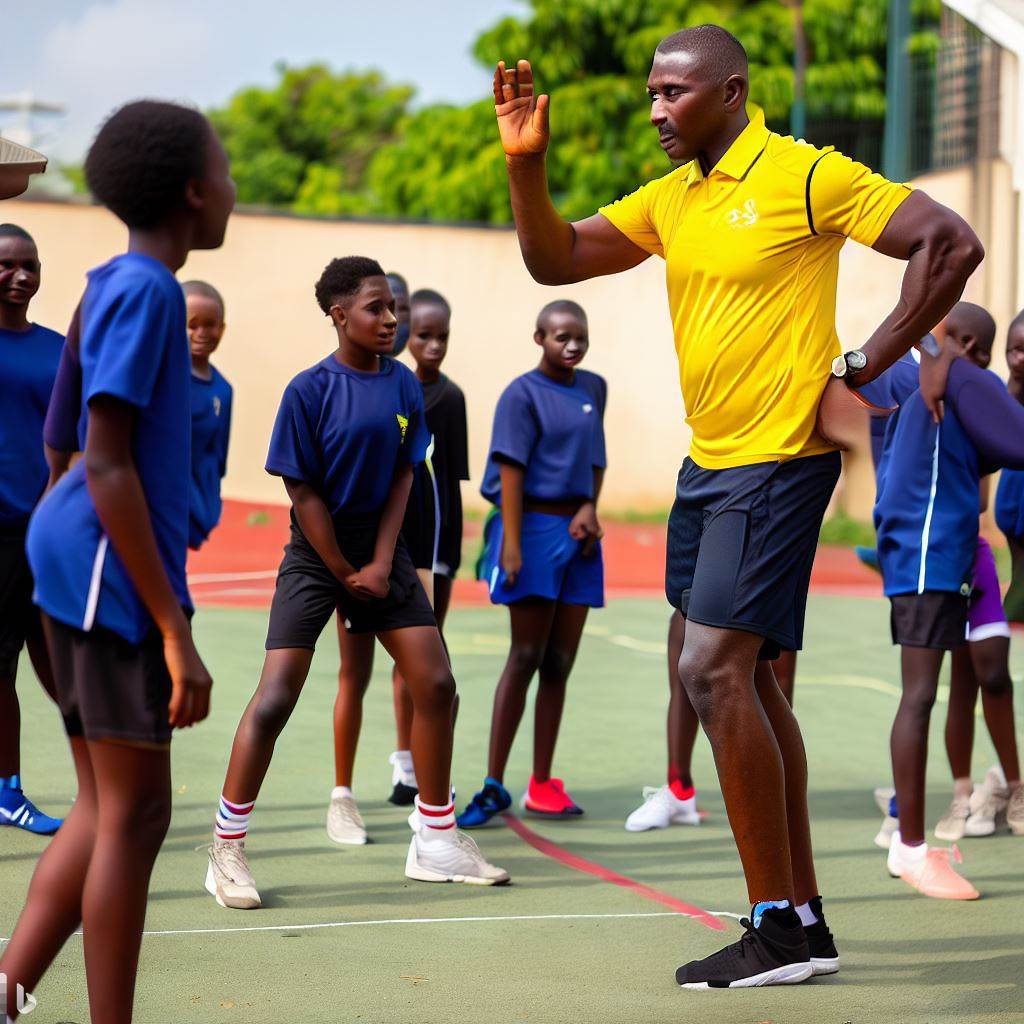Introduction
Athletic training is a vital discipline that ensures athletes’ physical and mental well-being, enhances their performance, and helps prevent injuries.
Without proper training, athletes are at risk of underperforming or sustaining long-term injuries.
It plays a key role in the success of sports teams and individual athletes.
Women have been actively involved in athletic training globally, challenging stereotypes and making significant contributions to the field.
In recent years, they have proven their expertise, dedication, and effectiveness in helping athletes achieve their goals.
Women have played a significant role in the development and advancement of athletic training practices and techniques.
In Nigeria, women in athletic training face a unique set of opportunities and challenges.
Despite the increasing recognition of their skills and knowledge, they still encounter gender biases and discrimination.
Women aspiring to enter this field often face resistance and limited opportunities for growth.
This section aims to explore the specific challenges faced by women in athletic training in Nigeria.
It will provide insights into the opportunities available to them and discuss strategies to overcome the existing barriers.
By highlighting the experiences of women in Nigeria, we can promote inclusivity and equality in the field of athletic training, ultimately benefiting the entire sports community.
Historical Background of Women in Athletics in Nigeria
A. The history and development of athletics in Nigeria
- Athletics has a long-standing history in Nigeria, with a rich sporting heritage.
- The development of athletics in Nigeria can be traced back to colonial times.
- During this period, sports were primarily male-dominated, and women faced limited opportunities.
- However, women still participated in local athletic events, albeit on a smaller scale.
B. The challenges faced by women in athletics historically
- Historically, women in athletics faced numerous challenges, including societal stereotypes and limited support.
- Traditional gender roles often restricted women’s participation in sports, including athletic training.
- Lack of financial resources and facilities also presented significant obstacles for aspiring female athletes.
- Women had to overcome both external and internal barriers to pursue their passion for athletics.
C. How women’s involvement in athletics has evolved over time
- Over the years, women’s involvement in athletics in Nigeria has experienced a transformative shift.
- The emergence of female role models and advocates for gender equality played a crucial role.
- Women began to challenge societal norms and demand equal opportunities in athletic training.
- The government, sports organizations, and schools gradually recognized the importance of promoting women’s sports.
Lastly, the historical background of women in athletics in Nigeria reflects a challenging journey filled with obstacles and limitations.
However, with the changing societal norms and increased awareness of gender equality, women’s involvement in athletics has evolved significantly.
The next section will delve deeper into the current opportunities and challenges faced by women in athletic training in Nigeria.
Read: Continuing Education for Athletic Trainers in Nigeria
The Rise of Women in Athletic Training in Nigeria
A. Increasing Number of Women Entering the Field of Athletic Training
- In recent years, there has been a significant rise in the number of women pursuing a career in athletic training.
- More and more young women are choosing to study sports medicine and related fields
- This increase in the number of female athletic trainers is a positive development for the profession.
- Women bring a unique perspective and skill set to the field, enhancing the overall quality of care.
B. Achievements and Contributions of Female Athletic Trainers in Nigeria
- Female athletic trainers in Nigeria have made remarkable achievements and invaluable contributions.
- They have successfully worked with various sports teams and have helped athletes perform at their best
- These women have demonstrated exceptional skills in injury prevention, assessment, and rehabilitation.
- Their dedication and expertise have significantly improved the overall health and well-being of athletes.
- Female athletic trainers have also played a crucial role in creating a safe and inclusive environment for athletes.
C. Factors Influencing the Rise of Women in Athletic Training
- Several factors have contributed to the increasing presence of women in the field of athletic training.
- Changing societal attitudes towards gender roles have encouraged more women to pursue careers in male-dominated fields.
- Increased awareness and advocacy for gender equality and opportunities in sports have also played a significant role.
- Progressive educational institutions and sports organizations have actively promoted the inclusion of women in athletic training.
- Mentorship programs and support networks have provided guidance and encouragement for aspiring female athletic trainers.
- Furthermore, the success stories of trailblazing women in the field have inspired others to follow in their footsteps.
- These various factors combined have created a more welcoming and empowering environment for women in athletic training.
Overall, the rise of women in athletic training in Nigeria is evident.
The increasing number of women entering the field brings fresh perspectives and expertise, enhancing the overall quality of care provided to athletes.
Female athletic trainers have made remarkable achievements and invaluable contributions, positively impacting the health and well-being of athletes.
Several factors, such as changing societal attitudes and increased support and opportunities, have influenced the rise of women in this profession.
With continued efforts to promote gender equality and inclusion, the future looks promising for women in athletic training in Nigeria.
Read: The Future of Athletic Training in Nigeria: Expert Insights
Opportunities for Women in Athletic Training in Nigeria
A. The growing demand for athletic trainers in Nigeria
Nigeria is experiencing a growing demand for athletic trainers due to the rise in sports participation.
As sports become more popular, the need for trained professionals to ensure the safety and well-being of athletes is crucial.
There is a recognition of the importance of athletic trainers in preventing and managing sports-related injuries.
Athletic trainers are now an integral part of sports teams and organizations in Nigeria.
B. The various career paths available to women in athletic training
Women in Nigeria now have numerous career paths to choose from in the field of athletic training.
They can work as athletic trainers in schools, universities, sports clubs, and professional sports organizations.
Women can also specialize in areas such as sports nutrition, sports psychology, and strength and conditioning.
There are opportunities for advancement and leadership roles in the field of athletic training for women.
C. The positive impact that women bring to the field
Women bring a unique perspective to the field of athletic training in Nigeria.
They bring empathy, understanding, and compassion when working with athletes of all backgrounds.
Female athletic trainers serve as positive role models for young female athletes, inspiring them to pursue careers in sports.
Their presence in the field also promotes gender equality and diversity in the sports industry.
In short, women in Nigeria have numerous opportunities in the field of athletic training.
The growing demand for athletic trainers, the variety of career paths available, and the positive impact that women bring highlight the progress being made.
It is crucial to continue supporting and empowering women in athletic training to further enhance the sports industry in Nigeria.
Read: Nigeria’s Assistant Coach Success Stories in 2022
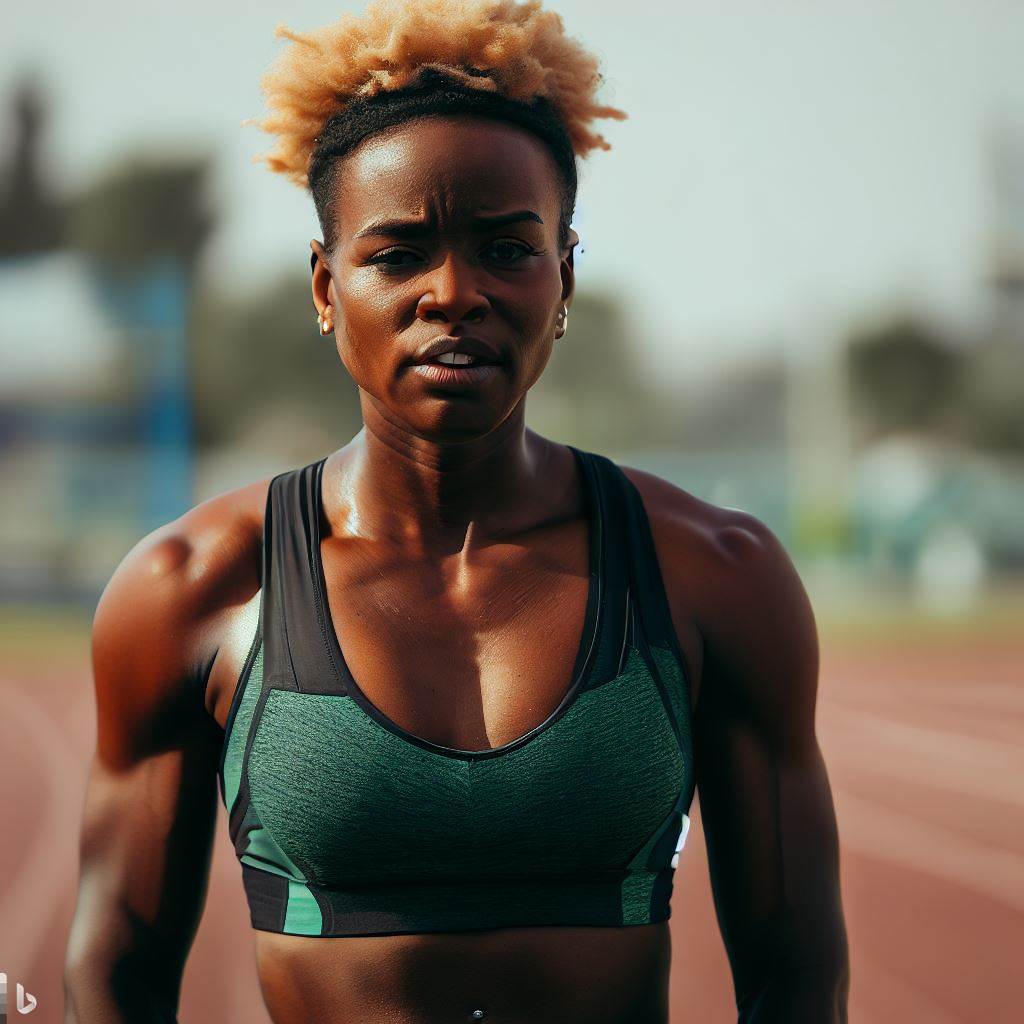
See Related Content: Ethics in Sports: The Athletic Director’s Role in Nigeria
Challenges Faced by Women in Athletic Training in Nigeria
A. Addressing gender bias and discrimination in the athletic training industry
- Women often face gender bias and discrimination in the athletic training industry in Nigeria.
- This bias can manifest in the form of unequal pay and limited career growth opportunities.
- It is important to address and challenge these biases in order to create a more inclusive and equitable work environment.
- Organizations should establish policies that promote gender equality and provide training on diversity and inclusion.
- By creating a supportive and respectful culture, women can feel empowered to thrive in the field of athletic training.
B. Cultural factors that may hinder women’s advancement in this field
- In Nigeria, cultural factors can hinder women’s advancement in the field of athletic training.
- Stereotypical gender roles often limit women’s opportunities to pursue careers in sports-related fields.
- Traditionally, women are expected to focus on household duties rather than pursuing careers.
- Breaking away from these cultural expectations requires societal and family support.
- Education and awareness programs can help shift perceptions and encourage more women to enter the field of athletic training.
C. The lack of representation and opportunities for women in leadership roles
- Women in Nigeria face a lack of representation and opportunities for leadership roles in athletic training.
- This lack of representation can discourage women from pursuing careers in the industry.
- Organizations should actively promote and create pathways for women to take on leadership positions.
- Mentorship programs and networking opportunities can help women gain the skills and connections necessary for advancement.
- Leadership diversity in athletic training can bring new perspectives and contribute to better decision-making processes.
Read: Athletic Trainer Equipment in Nigeria: What You’ll Need
Initiatives and Support for Women in Athletic Training in Nigeria
A. Organizations and programs that promote gender equality in sports and athletic training
- Women in Sports Nigeria (WISN) is an organization dedicated to promoting gender equality in sports and athletic training.
- WISN organizes workshops and conferences to empower women interested in pursuing a career in athletic training.
- The Nigerian Women’s Football League (NWFL) provides opportunities for women to excel in sports and athletic training.
- NWFL actively supports female athletes and encourages their participation in various sporting events.
- The Female Sports Foundation (FSF) provides scholarships and mentorship programs for women pursuing careers in athletic training.
- FSF offers financial assistance to talented female athletes and helps them overcome financial barriers to excel in the field.
B. Efforts to encourage and empower women entering the field
- Various Nigerian universities have introduced undergraduate and postgraduate programs in athletic training.
- These programs aim to attract more women to the field by offering specialized courses and mentorship opportunities.
- Local sports associations collaborate with academic institutions to organize internships and practical training for aspiring female athletic trainers.
- The Nigerian government has initiated funding programs to support women pursuing careers in sports science and athletic training.
- Professional athletic trainers actively mentor and guide young women entering the field, providing valuable guidance and support.
C. Success stories of women who have overcome challenges and achieved excellence
- Funke Lawal, a renowned athletic trainer, fought against societal stereotypes and achieved great success in her career.
- Lawal’s dedication and perseverance have inspired numerous women to enter the field and pursue their dreams.
- Blessing Okagbare, an Olympic medalist, overcame gender barriers to become one of Nigeria’s most successful athletes.
- Okagbare’s achievements have motivated young girls to break barriers and pursue careers in athletic training.
- Stephanie Onusiriuka, a young and talented athletic trainer, has established a successful training center for aspiring athletes.
- Onusiriuka’s determination and passion have served as a beacon of inspiration for young women interested in the field.
General, Nigeria has made significant progress in empowering women in athletic training through organizations, programs, and success stories.
The support provided by organizations like WISN and FSF, along with efforts from universities and the government, has created a conducive environment for women to thrive in the field.
The inspiring stories of women like Lawal, Okagbare, and Onusiriuka showcase the limitless potential of women in athletic training and serve as strong motivation for others to overcome challenges and achieve excellence.
Conclusion
- Women in athletic training in Nigeria face both opportunities and challenges. Despite limited resources, they have shown determination and passion to succeed.
- Continued support and progress in promoting gender equality in this field is crucial. It is important to provide equal opportunities and resources to all aspiring female athletic trainers.
- Although there are obstacles, the future for women in athletic training in Nigeria is promising. With increased awareness and support, they can excel and make significant contributions to the field.

